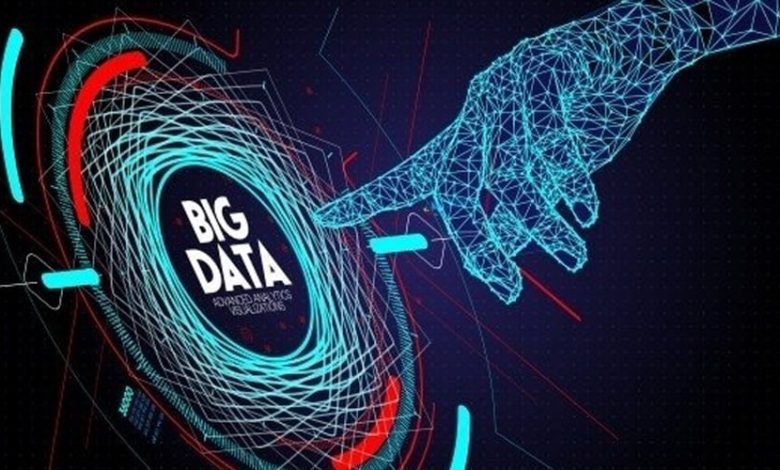MBA in Big Data and Business Analytics: Colleges, Course Details, Admission, Fees & more.
The curriculum for these programs typically includes courses on data mining, statistical analysis, machine learning, and data visualization, among others.

In recent years, business schools have recognized the growing importance of big data and business analytics in today’s business world. As a result, many MBA programs now offer concentrations or specializations in these areas. These programs aim to provide students with the skills and knowledge needed to analyze large amounts of data and extract insights that can help inform business decisions.
The curriculum for these programs typically includes courses on data mining, statistical analysis, machine learning, and data visualization, among others. Students also have the opportunity to work on real-world projects and case studies, giving them hands-on experience with the tools and techniques used in the field. As such, those holding a degree in these fields can have an impact on many areas of business, including finance, marketing, supply chain, and more.
In this MBA Program students are exposed to a number of concepts important to the discipline. For example, classes may cover topics such as predictive analysis, marketing intelligence, and econometrics. In addition to MBA specializations, many business schools also offer other master’s degree programs in business analytic, big data or related programs such as marketing intelligence or supply chain analytics.
The demand for professionals with expertise in big data and business analytics continues to grow, and many MBA graduates with these skills are finding job opportunities in a wide range of industries, including finance, marketing, healthcare, and technology. As such, these programs can be a valuable investment for those looking to advance their careers in these fields.
What is MBA in Big data or Data Analytics?
An MBA in Big Data or Data Analytics is a specialized program that combines the traditional MBA curriculum with coursework focused on big data and data analytics. The program is designed to provide students with a strong foundation in business management and strategy, along with the technical skills needed to work with large datasets and extract insights from them.
The curriculum for an MBA in Big Data or Data Analytics typically includes courses on topics such as data mining, statistical analysis, machine learning, data visualization, and database management. Students may also have the opportunity to work on real-world projects and case studies, applying their skills to solve business problems using data-driven insights.
Some programs may also offer specialized courses in areas such as marketing analytics, financial analytics, or healthcare analytics, depending on the focus of the program and the needs of the industry.
Graduates of an MBA in Big Data or Data Analytics are well-positioned to pursue careers as data analysts, data scientists, business analysts, or managers in a wide range of industries, including finance, healthcare, marketing, and technology. They have the skills and knowledge needed to work with large datasets, develop data-driven strategies, and lead teams in the use of data analytics to drive business growth and success.
Eligibility Criteria for MBA in Data Analytics or Big Data Program:
To study MBA in Data Analytics or Big Data program, students must fulfill the eligibility criteria set by the colleges, university they are planning to join. The basic criteria to pursue this program are given below:
- Anyone who has completed their graduation or equivalent from a recognized college, institution or university and meets the basic criteria of marks can go for admission process.
- Some colleges, institutions and universities have their specific guidelines for admission, so make a note of it and proceed towards fulfilling these mandates.
- You must go for entrance exams like CAT, XAT, CMAT, and GMAT or if you are planning for Abroad you have to crack IELTS and TOEFL with good score.
Difference between Data Analytics Business Analytics:
Data Analytics and Business Analytics are two related but distinct fields. Data Analytics is concerned with analyzing data to uncover insights and patterns, while Business Analytics focuses on using data analysis to drive business decisions and strategy.
Here are some key differences between the two:
Focus: Data Analytics is focused on analyzing data to uncover insights and patterns that can be used to inform business decisions. Business Analytics, on the other hand, is focused on using data analysis to drive business decisions and strategy.
Scope: Data Analytics is typically focused on analyzing specific sets of data to answer specific questions, while Business Analytics is concerned with analyzing data across multiple areas of the business to provide a comprehensive view of performance.
Tools and Techniques: Data Analytics typically involves statistical and data modeling techniques to analyze data, while Business Analytics involves a broader range of tools and techniques, including data visualization, predictive modeling, and machine learning.
Objectives: The objectives of Data Analytics are typically to gain insights and identify patterns that can be used to improve business performance. In contrast, the objectives of Business Analytics are typically to use data to drive decision-making and strategy.
Audience: Data Analytics is typically targeted at data scientists and analysts, while Business Analytics is targeted at business executives and decision-makers.
Overall, while Data Analytics and Business Analytics are related fields, they have different focuses, scopes, tools, and objectives. Understanding these differences is important for determining which approach is best suited for a particular business problem or decision.
Technical Skills required for MBA in Data Analytics:
An MBA in Data Analytics program requires both business acumen and technical skills. Here are some of the technical skills required for an MBA in Data Analytics:
Data Mining and Warehousing: Understanding of the principles of data mining and data warehousing to extract insights from large and complex data sets.
Programming Languages: Familiarity with programming languages like Python, R, SQL, and Java to clean, manipulate, and analyze data.
Statistical Analysis: Knowledge of statistical concepts and techniques such as regression analysis, probability, and hypothesis testing to evaluate data and draw insights.
Machine Learning: Understanding of machine learning algorithms and techniques, such as decision trees, neural networks, and clustering, to develop predictive models.
Data Visualization: Ability to create clear and effective visualizations, such as charts and graphs, to convey insights from data.
Database Management: Understanding of database management systems (DBMS), data modeling, and data architecture to organize and store data effectively.
Big Data Technologies: Knowledge of big data technologies such as Hadoop, Spark, and NoSQL databases to manage and process large volumes of data.
Data Security: Knowledge of data security and privacy principles, such as access control, encryption, and regulatory compliance.
Cloud Computing: Familiarity with cloud computing platforms such as AWS, Azure, and Google Cloud Platform for scalable and cost-effective data storage and processing.
These are just some of the technical skills required for an MBA in Data Analytics program. Graduates with these skills are well-prepared to work in roles such as data analyst, data scientist, business analyst, or data engineer, in a variety of industries.
Top Colleges in India MBA in Big-Data or Data Analytics:
Here are a list of a some good colleges in India for MBA in Big Data or Business Analytics program:
| Colleges | NIRF Ranking | Location |
| Indian Institute of Management | 2 | Bangalore |
| Indian Institute of Management | 3 | Calcutta |
| Indian Institute of Management | 23 | Kashipur |
| Indian Institute of Technology | 12 | Kharagpur |
| Indian Institute of Technology | 14 | Dhanbad |
| IMT | 44 | Ghaziabad |
| Indian School of Business (ISB) | NA | Hyderabad |
| Symbiosis Centre for Information and Technology | NA | Pune |
| Great Lakes Institute of Management | 31 | Chennai |
| L. N. Welingkar Institute of Mgmt. Development & Research (We School) | 68 | Mumbai |
Some Top Recruiters of Big Data and Data Analytics:
Big Data and Data Analytics are rapidly growing fields with high demand for skilled professionals. Here are some top recruiters of Big Data and Data Analytics:
- Amazon Web Services (AWS)
- Microsoft
- IBM
- Oracle
- SAS
- Tableau
- Teradata
- Dell Technologies
- Accenture
Here are a list of a some good universities in India for Online MBA in Big Data or Business Analytics program:
| Universities | Location |
| Amity University | Noida |
| Manipal University | Jaipur |
| Jain University | Bangalore |
| Manav Rachna International Institute of Research & Studies | Faridabad |
| Lovely Professional University | Punjab |
| Hindustan University | Chennai |
In addition to these tech giants, many companies across various industries such as finance, healthcare, retail, and manufacturing, are also investing in Big Data and Data Analytics. Some of the top employers in these industries include JP Morgan Chase, UnitedHealth Group, Walmart, and General Electric.
Startups and emerging companies in the Big Data and Data Analytics space are also gaining traction and providing new opportunities for professionals in the field. These companies are often focused on developing innovative solutions for specific industries or niche markets.
In summary, the demand for Big Data and Data Analytics professionals is high and continues to grow, with a wide range of employers across industries looking to hire skilled candidates.
Upcoming Big Data Technology Trends:
Here are some upcoming Big Data technology trends that are likely to shape the industry in the coming years:
Artificial Intelligence (AI) and Machine Learning (ML): AI and ML are increasingly being integrated into Big Data platforms, allowing for the automation of data processing and analysis, as well as the development of predictive models and recommendations.
Edge Computing: With the proliferation of Internet of Things (IoT) devices, there is a growing need for processing and analyzing data at the edge of the network, closer to where the data is generated. Edge computing enables real-time analysis of data and reduces the need to transmit large amounts of data to central data centers for processing.
Cloud-based Big Data Platforms: Cloud-based Big Data platforms provide scalable and cost-effective solutions for managing and analyzing large datasets. The flexibility and accessibility of cloud-based platforms allow organizations to easily scale their Big Data operations as their needs evolve.
Blockchain: Blockchain technology is increasingly being used to manage and secure Big Data transactions, particularly in industries such as finance and healthcare.
Quantum Computing: Quantum computing has the potential to revolutionize Big Data analytics by allowing for faster and more complex data processing and analysis.
Natural Language Processing (NLP): NLP is being used to analyze and understand unstructured data, such as text and speech, enabling more accurate sentiment analysis and customer feedback.
Graph Analytics: Graph analytics enables the analysis of complex networks and relationships within Big Data, allowing for the identification of patterns and insights that would be difficult to identify using traditional data analysis methods.
These are just a few examples of the many technology trends that are shaping the Big Data industry. As the field continues to evolve, it will be important for organizations to stay up-to-date with the latest technologies and tools to remain competitive and drive business success.
History of Big Data:
The concept of Big Data is not new, but it has gained significant attention and importance in recent years due to the exponential growth of data generated by digital technologies.
The term “Big Data” was first used in the early 2000s to describe datasets that were too large to be managed and processed by traditional data processing tools and techniques. However, the idea of analyzing large datasets has been around for decades. In the 1950s and 1960s, for example, the US Census Bureau used computers to process and analyze large amounts of data to improve population estimates.
The growth of the internet and digital technologies in the 1990s and 2000s led to an explosion of data generation. Social media, e-commerce, and other digital platforms generate massive amounts of data every day, providing new opportunities for businesses to analyze consumer behavior, market trends, and other insights.
The emergence of technologies such as Hadoop, which was developed by Yahoo in 2006, and cloud computing, which allows for the storage and processing of large datasets, has made it easier and more cost-effective to manage and process Big Data.
Today, Big Data plays a critical role in a wide range of industries, including finance, healthcare, retail, and marketing. Companies are using Big Data analytics to drive business decisions, improve operations, and gain a competitive edge in the marketplace. The field of Big Data continues to evolve, with new tools and technologies being developed to manage and analyze data at an ever-increasing scale.
Also Read: IIM Kashipur Placement 2023; Record 100% Placement, Highest CTC is Rs 37 Lakh






